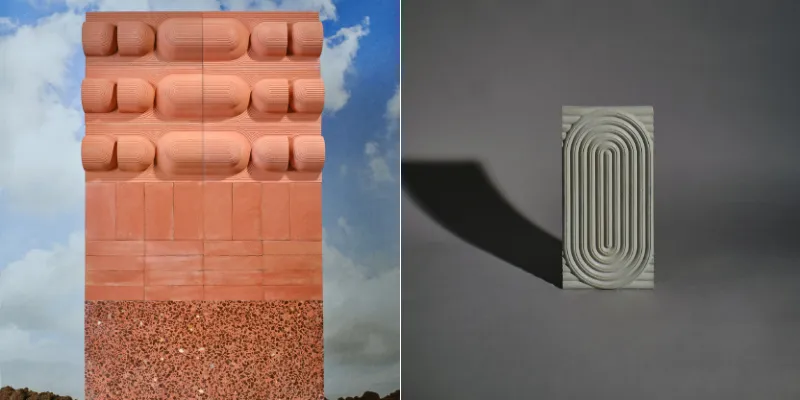How a 100-year-old tile business is staying relevant in the modern world
Born out of the Swadeshi Movement, Bharat Floorings and Tiles is a 100-year-old business that offers quality cement flooring. But how is an old company staying afloat in a new world?
The journey of Mumbai-based Bharat Floorings and Tiles dates back to 1922 when Pherozesha Sidhwa was inspired to be a part of the Swadeshi Movement.
Pherozesha always wanted to be a lawyer. However, influenced by Jamshed Mehta, a colleague of Mahatma Gandhi, and understanding the need for making the country economically and politically independent, he became an entrepreneur and started the handmade cement tile business with a primary aim to reduce India’s dependence on imports.
Speaking to SMBStory, Firdaus Variava, the third-generation entrepreneur of the business, says the name ‘Bharat’ was given to resonate with the patriotism associated with its business.
“When they started the business, they used to engrave the map of undivided India behind every tile. The quality was so superior that people would think it was imported. It was a roaring success so much so that the Raj Bhavans and Maharajas' palaces had Bharat tiles,” Firdaus says.
Even today, prominent residences, iconic cinema houses, art deco buildings of Marine Drive, Oval, and Malabar Hill have Bharat floors.
However, the journey for Bharat Floorings and Tiles was not easy as the British strongly opposed the business. And, between 1930 and 1940, Pherozesha had to shut the business while fighting a case regarding allegations by the British.
The start of World War II also affected the business as cement, the primary material for the tiles, was ordered to be used only for defence purposes.
It was in the mid-1940s that the business restarted, and there has been no looking back since then.
Taking forward a 100-year-old legacy
For a decade when Bharat Floorings and Tiles’ Uran factory was shut, Pherozesha did not let his spirit down. He, along with his nephew and other cousins, started a metal printing business for survival.
“This small pivot helped them not only thrive and restore their lost tiles business but also build India's first grinding wheel company, which is now known as Grindwell Norton Ltd,” Firdaus says.
The business owners took the 10-year halt as a pit stop and emerged stronger, bringing to the fore some premium-quality floor tiles that gave tough competition to the global players. Tiles they launched in the 70s are still in place at Chhatrapati Shivaji Terminal and Flora Fountain in Mumbai .
“Besides the good quality, in between 80s and 90s, they re-launched some old moulds and designs that got a lot of attention from customers. I joined the business in 2005 after which we started focusing on expanding the business,” he says.

Tile designs by Bharat Floorings
A traditional company in the modern world
Even after hundred years of being in the business, Bharat Floorings and Tiles continues to offer handmade cement tiles manufactured in at their unit in Palghar. The process is old and involves artisans from across India, but Firdaus says that there is a vast treasure of designs that’s still to be offeed to customers.
Recently, they launched centenary designs based on old Italian pattern books and named after key people in the company’s history.
The company boasts of clients like Wipro, Infosys, Aditya Birla Group etc. Hotel chains like Hilton and Radisson in Goa, Leela in Kovalam and Taj Hotels also flaunt Bharat Floorings and Tiles. Bharat Flooring and Tiles also has tie-ups with interior designers for design floorings of residential properties.
Firdaus says that the company made a revenue of Rs 10 crore as of FY22 and is expecting Rs 30 crore in FY23. The company is eyeing revenue of Rs 100 crore by next fiscal year.
“The pandemic worked in our favour as , we are witnessing 50% year-on-year growth. We observed that after staying at home for long, many people started redesigning their houses and floors were their priority. The sentiments towards ‘made in India’ also led people to choose from homegrown brands. We were one of their prime choices,” Firdaus tells SMBStory.
The company also adopted rigorous digital marketing initiatives that helped them build an online presence.
“Earlier we were dependent only on the sales staff for the business but now we generate digital leads. Nobody had thought that this business would be tapped in the virtual world, but here it is growing day by day,” Firdaus says.
Challenges and the way forward
Commenting on the challenges faced by the business, Firdaus says the number of skilled artisans is decreasing.
“Cement gives tiles a lot of texture and with every new design we get a new learning curve. The challenge is getting karigars (artisans) since many of them are not passing the skills to their children,” he says.
“This kind of artwork is passed on generation after generation. However, now there is a dearth of artisans and we are trying our best to build an environment where artisans don’t feel exploited and carry their work forward to keep the legacy intact.”
Another challenge is brand awareness for which the company is leveraging digital marketing.
Talking about future prospects, Firdaus says Bharat Tiles is all set to launch its D2C website and plans to introduce handmade home decor products, including wall tiles, slabs, table tops, etc.
Edited by Affirunisa Kankudti







